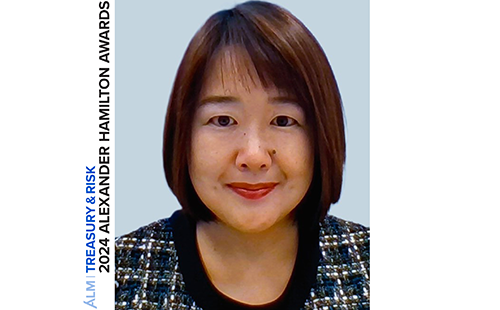
Mann+Hummel is a leader in filtration. The family-owned German business is not a household name, but it has been providing component parts to the auto industry for more than 80 years. "For almost every part of a vehicle that requires filtration, we offer a product—air filters, oil filters, etc.," says Peter Kleine, senior manager for standards and risk management/corporate purchasing.
"Mann+Hummel is what you might call a 'hidden champion,'" he continues. "We are not widely known outside the automotive industry, but we have been very successful in the last decades, growing and staying profitable. We have a production footprint in every region of the world, with more than 20,000 employees and a turnover of almost 5 billion euros annually."
Recommended For You
Not surprisingly for a global manufacturer, Mann+Hummel has an extensive international supply chain. "We buy raw-material–based products, like resin and chemicals, but we also buy parts like O-rings," Kleine says. "Our supplier base is heterogeneous. We have around 2,500 direct suppliers, which are very diverse in terms of size, turnover, and their market position. We do local and regional sourcing, but also make use of lower-cost manufacturing in Asia through global sourcing, especially for our production in Europe."
When the Covid-19 pandemic struck and manufacturers around the world experienced factory shutdowns and disruptions in cash flows, the Mann+Hummel supply chain also faced many threats. "We adapted our organization to handle the bottlenecks and intensified cross-functional communication to avoid stopping our production lines," Kleine says. "The whole situation led us to look more closely at our suppliers' financial stability. Resilience became a very important topic that everyone throughout Mann+Hummel was discussing."
In parallel, during the past few years, the company has been implementing a growth strategy with three areas of focus: broadening the Mann+Hummel product portfolio, expanding the company's product footprint in new markets, and funding acquisitions to support the expansion. The idea is to reduce the company's reliance on single markets such as the automotive sector.
To fund this expansion effort, the Mann+Hummel treasury team needed to further improve cash flows. Treasury was tasked with finding liquidity alternatives that could help pay for new product capabilities and infrastructure without increasing the company's debt load.
Mann+Hummel had already been operating a supply-chain finance program with most of its strategic suppliers for several years. Whenever the company receives an invoice from a participating supplier, it uploads the invoice to the PrimeRevenue platform. The supplier can then decide to sell the invoice early in order to receive the money before the invoice's maturity date. If the desired timing falls before the invoice due date, one of the program's funding partners will provide the early payment, less a discount based on the financing period. The costs of the program are the same across Mann+Hummel's whole supplier base.
The supply-chain finance program is typically much less expensive for the suppliers than terms they could get by borrowing from their banks or through their own factoring programs. Plus, this program does not impact their ability to draw on their bank lines or to access other sources of funding.
The supply-chain finance program was a lifeline for the Mann+Hummel supplier base during Covid. "At the beginning of the Covid crisis, our suppliers were all trying to get as much cash as possible through this program," explains Mario Parrotta, a risk manager in Mann+Hummel's treasury and risk management group. From May to September of 2020, many of the company's suppliers were consistently trading the maximum amount they could within the supply-chain finance platform. This gave them access to debt-free liquidity, which helped keep their businesses on track during a period of historic volatility in manufacturing.
During Covid, the company also expanded its supply-chain finance program to its new Life, Science, and Environment business unit, which is growing rapidly, and intensified its focus on making onboarding into the program fast and easy for high-volume suppliers. Mann+Hummel brought together a cross-functional team consisting of representatives from finance, treasury, and purchasing. They focused on ensuring that the company was effectively targeting suppliers, educating them on the benefits of early payment, and training them on how to use the solution.
See also:
- Gold Award—Microsoft: "Forecast for A/R: Dramatic Improvement in Efficiency"
- Silver Award—Christian Louboutin: "Stepping up Management of Intercompany Transactions"
"When you're reflecting on how to make a program like this successful, communication with suppliers is key," Kleine explains. "This is not a topic to discuss with only the supplier's salesperson. You need to talk to the right people—particularly people in finance—and they must understand how the program works and what the benefits are for them.
"It's not something you can just send out in an email," he adds. "Our project team set up sessions with our suppliers and explained, step by step, how the program works and what it means, what it costs, and what the implications are. We were quite successful in helping our suppliers understand the benefits of the program."
Meanwhile, the supply-chain finance program helped Mann+Hummel boost short-term liquidity during the pandemic and avoid potential supplier failures by getting suppliers paid faster. "It was an opportunity to improve our cash flow, implementing long payment terms for us while helping our suppliers get access to their money very quickly," Kleine says.
Now five funders provide liquidity to more than 100 suppliers, in six currencies and across 23 countries. Those suppliers trade more than 500 million euros each year on the platform—roughly one-fourth of Mann+Hummel's direct spend. "The flexibility in choosing when they want to get paid and the option to get the money much earlier than with normal payment terms make a big difference for our suppliers" Kleine says.
"We have strengthened our supply chain with this program," Parrotta adds. "We give our suppliers access to funds they need to sustain their operations. And we improve our cash flow at the same time."
In fact, the program has resulted in a cash flow improvement of more than 100 million euros for Mann+Hummel, as the company has extended its days payables outstanding (DPO) by more than 50 percent. This has helped support the company's goal of expanding its global presence and broadening its product portfolio via strategic acquisitions. Another benefit, according to Parrotta, is standardization in the payment process.
"This makes us more efficient, both in accounts payable and in negotiating contracts," he says. "We extend our basis payment terms a bit, but the supplier has the option to get paid much sooner than it otherwise would. We call it a win-win because it has benefits for both parties."

© Touchpoint Markets, All Rights Reserved. Request academic re-use from www.copyright.com. All other uses, submit a request to [email protected]. For more inforrmation visit Asset & Logo Licensing.



